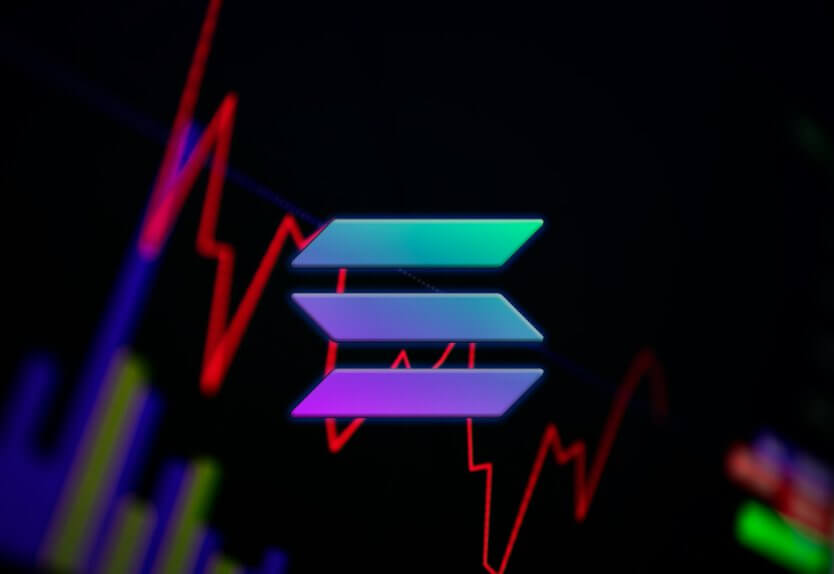There have been some disturbing trends in the crypto space recently, but one in particular caught my eye last week. Solend, the Solana-based lending platform, has passed a government vote to take over a private portfolio.
The private wallet (now called “whale”) has deposited 5.7 million SOL, with a current value of $ 200 million, on the lending platform. Against this position, the whale borrowed $108 million in stablecoins. The 5.7 million SOL tokens represented more than 95% of the total deposits on the platform.
The problem arose when the price of Solana fell alongside the wider market, significantly reducing the value of the whale’s guarantee and putting a potential liquidation scenario into play. In this case, the market would be flooded and could burst the value of the Solana token.
“In the worst case scenario, Solend could end up with a bad debt,” Solend said. “This could cause chaos, putting a strain on the Solana network. »
Consequences of liquidation
Tracing this amount of SOIL in relation to the trading volume highlights the impact this would have on the market, the triggering effects of bots on DEX probably further exacerbating the downward pressure caused if this portfolio flooded the market.
The liquidation price of the loan is $22.27, which would require a 35% drop from current prices to be triggered. Although this is a substantial drop, Solana has dropped 80% this year alone and a 35% drop from here is far from inconceivable – and it came very close as Solana dropped last week to $25.
The protocol tried to contact the whale and ask him to top up the loan, but there was radio silence, as the wallet was inactive for almost two weeks. Thus, a vote was passed and the protocol voted to temporarily take over the whale’s wallet and reduce the risks to the protocol.
After taking over the portfolio, the plan was to liquidate the whale via over-the-counter transactions, rather than risk a cascading contagion by liquidating in a chain via the automatic mechanisms.
2/ a whale has a massive position of $170M SOL deposited and $108M stables borrowed. they’re currently 95% of the SOL deposits and 86% of USDC borrowshttps://t.co/Xp7Xym5LQt
— 🙏🚫 Root / Solend (hiring!) (@0xrooter) June 18, 2022
Since then, the whale has transferred $25 million to Mango’s markets, limiting the destruction that would be caused to Solend if the liquidation were triggered.
3oSE…uRbE has acted on our suggestion to spread their position across lending venues (decentralized and centralized) as a first step.
So far they’ve moved $25M USDC debt to @mangomarkets
This shows commitment to working things out and solves Solend’s USDC utilization problem.
– 🙏🚫 Solend (we’re hiring!) (@solendprotocol) June 21, 2022
However, although this reduces the vulnerability of the Solend protocol, the threat of liquidation remains, which means that Solana is very nervous.
But let’s stop thinking about it for a second.
Previous
I understand that the protocol did not end up taking control of the portfolio because the portfolio withdrew independently, but the vote was passed and that was the plan. It should also be noted that following an intense backlash on Twitter, another vote was passed on Solend to cancel the previous vote.
But this is exactly the opposite of what cryptocurrency is supposed to be: decentralized, resistant to censorship and trustless.
And with this precedent, where is the line drawn? Which accounts could potentially be taken over? Can large accounts come together to take over small accounts and siphon off their funds? Can the owners of the protocol claim assets from the portfolios if they feel that they are acting in a way that is incompatible with their vision?
The reality is that anything is possible because it’s centralized, and a dangerous precedent has been set. Ironically, this is essentially the main reason for the invention of cryptocurrency in the first place – to combat the dangers of centralization. If the founder of Bitcoin, Satoshi Nakamoto, is somewhere, he must take a leap back when he sees this horror.
New vote idea – instead of liquidating the solend whale, everyone that votes yes to this proposal gets to keep the whales’ funds instead. Solend will have a lot of bad debt but the token holders that voted yes will be rich. lfg!
— Cobie (@cobie) June 19, 2022
Whale
We don’t know who the whale is, but they were harshly abandoned by protocol. They deposited this money under the pretext that they could take out a loan and do whatever they wanted. Now the owners and the protocol have intervened to confiscate this privilege in order to protect the price of their token. Money talks, doesn’t it?
It turns out that the protocol is not a peer-to-peer protocol without trust. Instead, it is a centralized borrowing platform that forces investors to trust the owners and other users. The goalposts have not been moved, but rather they have been completely dismantled.
This is not decentralized finance. Instead, it is still a very centralized finance.

